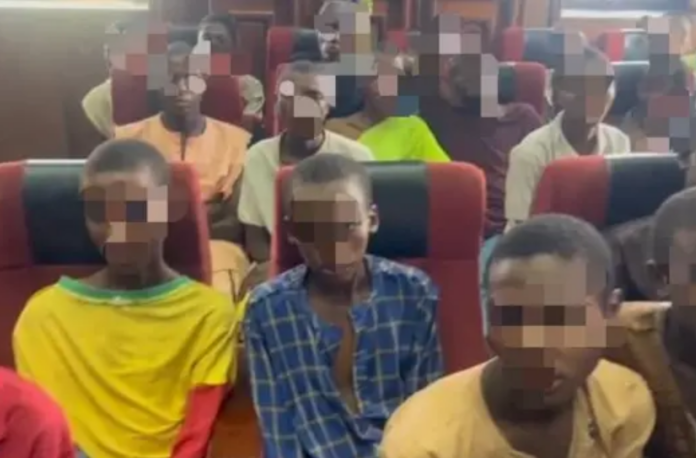Dozens of alleged protesters were brought before a Nigerian court on Friday, sparking outrage as many of the defendants appeared to be malnourished following two months of detention.
Four young suspects – who were arrested during major anti-government protests in August – collapsed on the courtroom floor, writhing in pain before being removed to get medical help. At least one-third of those brought in for the initial court hearing were boys aged between 14 and 18.

All 76 defendants pleaded not guilty to charges of treason, felony and inciting mutiny. Activists said the defendants had been in custody since August, when protests over a deepening cost-of-living crisis ignited across Nigeria.
In response, rights group Amnesty International said “Putting minors through these horrifying detentions for participating in protests against hunger and corruption is – so far – one of the deadliest attempts to suppress freedom of assembly.” Another Nigerian rights organization, Enough is Enough, called the situation “institutional child abuse,” demanding the teenagers be released.
Some of the defendants were charged with flying Russian flags during the demonstrations, which showed a small number of protesters calling on Russia’s President Vladimir Putin for help. In a separate case, 10 other suspects were accused of working with a British citizen “to destabilise Nigeria by calling on the military to take over government.”
Nigeria is experiencing its worst economic crisis in a generation, with annual inflation over 30% and food prices skyrocketing. The crackdown on the protests has drawn widespread condemnation from human rights groups, who have criticized the Nigerian justice system’s treatment of the largely young, malnourished defendants.
The dramatic collapse of the young suspects in the courtroom has further fueled the outrage, with calls for their immediate release and an end to the alleged institutional abuse. The case highlights the government’s heavy-handed response to the public’s growing frustration over the country’s deepening economic woes.


